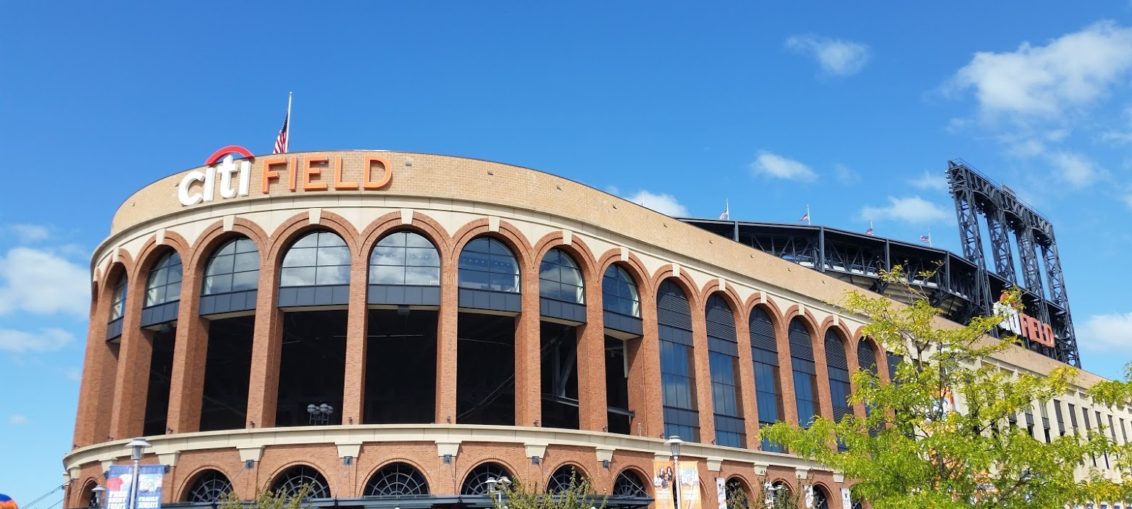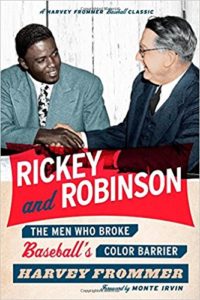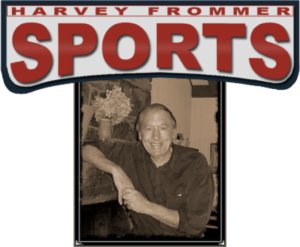
He was born in Cairo, Georgia on the last day of January in 1919, and died on October 24, 1972 in Stamford, Connecticut. Robinson attended UCLA, where he won letters in three sports.
He was in the Army during World War II and then played briefly in the Negro Leagues when the war ended. He was signed to a minor league contract with the Montreal Royals in 1946 by Branch Rickey, and the following year came up to the Brooklyn Dodgers and broke baseball’s age-old color line.

He played in the major leagues for a decade. He won the inaugural Rookie of the Year Award in 1947, the National League Most Valuable Player Award in 1949, and he helped the Dodgers win six pennants and one world championship.
Despite all the pressure he played under, he was still able to record a lifetime batting average of .311. His base-stealing ability and hustle won many games for the Dodgers. He set several records for fielding for second basemen.
His influence on sports is immeasurable. His breaking of baseball’s color line against the greatest of odds is still one of the most dramatic stories in all of sports history. And there are those who still have special memories of the man and the legend. Here is how one from that time still remembers the great player Brooklyn Dodger fans called “Robby”.
When school was out, I sometimes went with my father in his taxi. One summer morning, we were driving in East Flatbush in Brooklyn down Snyder Avenue. My father pointed to a dark red brick house with a high porch.
“I think Jackie Robinson lives there,” my father said. He parked across the street and we got out of the cab, stood on the sidewalk and looked at the house. Suddenly, the front door opened. A black man in a short-sleeved shirt stepped out. I didn’t believe it. Here we were on a quiet street on a summer morning with no one else around.
The man was not wearing the baggy, ice-cream-white-uniform of the Brooklyn Dodgers that accentuated his blackness. He was dressed in regular clothes, coming out of a regular house in a regular Brooklyn neighborhood, a guy like anyone else going out for a bottle of milk and a newspaper.
Then, incredibly, he crossed the street and came right toward me. Seeing that unmistakable pigeon-toed walk, the rock of the shoulders and hips that I had seen so many times before on the baseball field, I had no doubt who it was.
“Hi Jackie, I’m one of your biggest fans,” I said self-consciously. “Do you think the Dodgers are going to win the pennant this year?”
“His handsome face looked sternly down at me. “We’ll try our best,” he said.
“Good luck,” I said.”
“Thanks,” he replied.”
He put his big hand out, and I took it. We shook hands and I felt the strength and firmness of his grip. I was a nervy kid, but I didn’t ask for an autograph or try to prolong the conversation. I just he walked away down the street.
That was my first personal contact with Jackie Robinson. Years later I came across him in downtown Brooklyn in a Chock Full O Nuts coffee shop. He was the company’s vice president and director of personnel. Now he was heavier, gray-haired, slowed, sitting at the counter. We chatted a bit but the meeting was sadder, even poignant for me to see how this great athlete had been slowed by time and illness. He did not remember our chance meeting that long ago summer day but I did. Ironically, that coffee shop on Montague Street was close by what had been the offices of the Brooklyn Dodgers where Robinson had his first meeting with Branch Rickey who helped him shatter baseball’s color line.
Jack Roosevelt Robinson was my first real hero and one of the most important figures in the history of sports. Two of my favorite books I have written are about him.
One of the most prolific and respected sports journalists and oral historians in the United States, author of the autobiographies of legends Nolan Ryan,Tony Dorsett, and Red Holzman, Dr. Harvey Frommer is an expert on the New York Yankees and has arguably written more books, articles and reviews on the New York Yankees than anyone.

A professor for more than two decades in the MALS program at Dartmouth College, Frommer was dubbed “Dartmouth’s Mr. Baseball” by their alumni magazine. He’s also the founder of www.HarveyFrommerSports.com. His ULTIMATE YANKEE BOOK can be instantly purchased from AMAZON: http://www.frommerbooks.com/ultimate-yankees.html or from the author.
Article is Copyright © 2018 by Harvey Frommer. All rights reserved worldwide

Hi Harvey.
Jackie was a draft dodger. pulled strings at the Pentagon, left his buddies in Germany to fight the war.
He was ungrateful. bitched a storm about how rough it was sleeping in buses – while they were sleeping in the mud under their tanks and taking enemy fire for half the pay he was getting.
The Monarchs owner, JL Wilkinson, was never paid a cent. he could have killed the Dodger deal by suing (Rickey later dropped Irvin like a hot foul ball when Mrs Manley threatened to sue him.) but he said he wouldnt stand in the way of a man who had a chance to better himself. Did Jackie ever thank him? Did Rickey? Instead, Branch called him a racketeer, as any god fearing Methodist should.
Th Dodgers had six or seven uncannily bad post-seasons, Jackie hit under .200 in three of them. The Curse of Rickey-Robinson?
Why do New York reporters always leave that side of the story out? Because they dont know it, or because they do know it and they are covering it up?
john
I disagree Wes . MLBtraderumors and Fangraphs have stated constantly over the winter that the Dodgers plan to stay under the cap. They have the money but will not go over the cap. Otherwise, Stanton would probably be a Dodger right now. Otherwise, Darvish would be a Dodger right now. Both wanted to play for the Dodgers. Darvish waited until he could wait no more for the Dodgers to find a solution (trade Kemp). The Dodgers found no takers for Kemp. When both of these sites say this regularly I tend to believe them. The cap is real and teams do not want to cross it. Is it because they are waiting until 2018 offseason when Harper, Kershaw and Machado go on the market, I don”t know. What I do know is that in spite of all their cash the Dodgers do not want to go over the cap this off-season. So yes, the only way they get Darvish is by trading Kemp. At least that is what all the experts were saying the last 2 months.